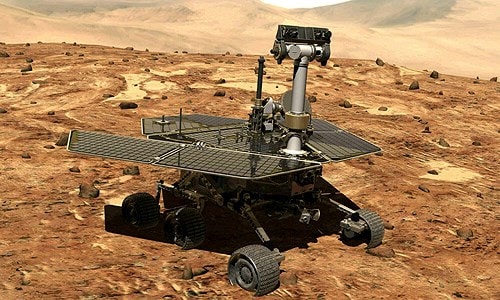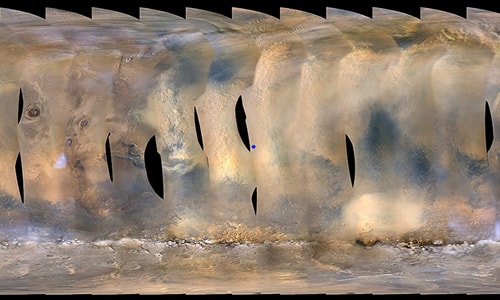NASA's rover 'dies' after 15 years of exploring Mars
A historic dust storm on the red planet left the Opportunity rover unable to recharge and lost contact with Earth.
 |
Opportunity rover on the surface of Mars. |
NASA announced the official end of the Opportunity rover's Mars exploration mission on February 13.GuardianThe vehicle encountered a huge dust storm and did not transmit signals to Earth for eight months. Experts tried to contact it several times, most recently on February 12, but received no response.
"I stand here with deep respect and gratitude to declare the Opportunity mission complete," said Thomas Zurbuchen, a specialist at NASA's Jet Propulsion Laboratory (JPL). He also said that the rover helped change human understanding of Earth and Mars and brought many advances in science.
Opportunity landed on Mars in January 2004, shortly after its “brother” Spirit landed. The pair were part of NASA’s Mars Exploration Rover program. However, Spirit became stuck in soft soil in 2009 and was declared defunct in 2011.
Opportunity continues to live on the surface of the red planet and transmit data back to Earth, like a remote “geologist”. The vehicle was designed to operate for 90 days, traveling about a kilometer. However, it has driven more than 45 kilometers and worked for 15 years.
"We previously thought that dust in the air would gradually accumulate on the solar panels, eventually losing power. What we didn't expect was that wind would periodically come and blow the dust away. This helped the rover survive its first winter and all winters on the Red Planet," explained John Callas, Mars Exploration Rover project manager.
|
Opportunity rover (green dot) in a Martian dust storm on June 6, 2018. Photo: NASA. |
Ultimately, Opportunity succumbed to a historic dust storm on the red planet, said scientist Abigail Fraeman. The storm obscured the sky so much that the rover could not see the sun and its solar panels could not recharge.
Opportunity discovered unusual iron-rich spheres, found signs of water, and for the first time spotted a meteorite on a planet other than Earth. The rover sent back stunning images, including a sandstorm sweeping across the surface of the red planet and panoramic shots showing spectacular craters. It also inspired many to pursue science and set the stage for new missions.
The end of Opportunity's mission is a mixed bag, according to Professor Andrew Coates, a planetary scientist at the Mullard Space Science Laboratory at University College London. "We celebrate the rover's achievements in its exploration of Mars, but we are also saddened by the loss of an old friend," he said.

